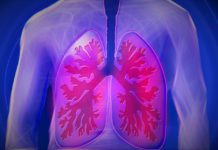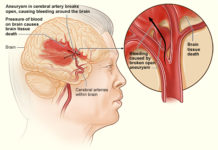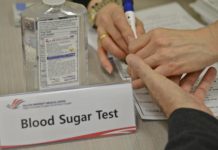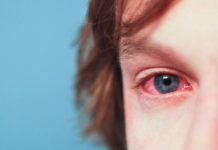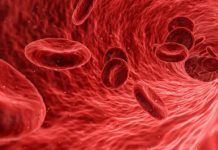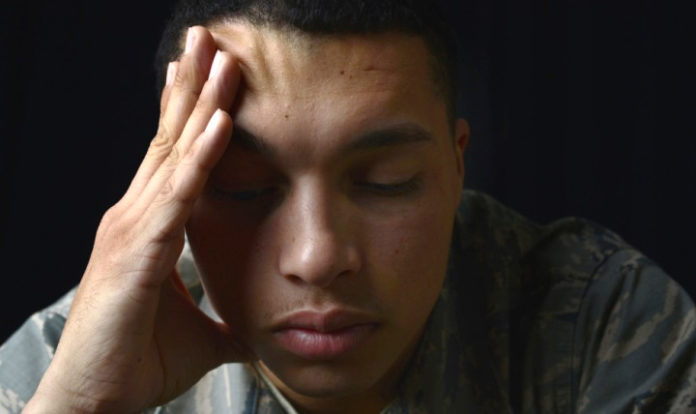
Long term study shows that deep brain stimulation (DBS) of an area in the brain called the subcallosal cingulate (SCC) provides a robust antidepressant effect
A study published in the American Journal of Psychiatry found that deep brain stimulation (DBS) of an area in the brain called the subcallosal cingulate (SCC) provides a robust antidepressant effect that is sustained over a long period of time in patients of severe depression who have not responded to other treatments.
Deep brain stimulation, currently approved by the U.S. Food and Drug Administration to treat essential tremor, Parkinson’s disease, epilepsy, and obsessive-compulsive disorder, is a neurosurgical procedure involving the placement of a neurostimulator (sometimes referred to as a “brain pacemaker”), which sends high-frequency electrical impulses through implanted electrodes deep in the brain to specific brain areas responsible for the symptoms of each disorder.
Although larger trials of DBS in resistant depression were halted early, researchers continued to follow the patients over 8 years. “Over eight years of observation, most of our study participants experienced an antidepressant response to the deep brain stimulation of Area 25 that was robust and sustained. Given that patients with treatment-resistant depression are highly susceptible to recurrent depressive episodes, the ability of DBS to support long-term maintenance of an antidepressant response and prevention of relapse is a treatment advance that can mean the difference between getting on with your life or always looking over your shoulder for your next debilitating depressive episode,” said lead author Helen S. Mayberg, MD, Professor of Neurology, Neurosurgery, Psychiatry, and Neuroscience, and Founding Director of the Nash Family Center for Advanced Circuit Therapeutics at the Icahn School of Medicine at Mount Sinai.
Three-quarters of all participants met the treatment response criterion for more than half of their participation in the study, with 21 percent of all participants demonstrating continuous response to treatment from the first year forward
The study documented the long-term outcome data for 28 patients who were enrolled in a clinical trial of SCC DBS for treatment-resistant depression. Response and remission rates were maintained at or above 50 percent and 30 percent, respectively, through years 2-8 of the follow-up period. Three-quarters of all participants met the treatment response criterion for more than half of their participation in the study, with 21 percent of all participants demonstrating continuous response to treatment from the first year forward. Of 28 participants, 14 completed at least eight years of follow-up, 11 others completed at least four years, and three dropped out prior to eight years of participation. Data presented through this study support the long-term safety and sustained efficacy of SCC DBS for treatment-resistant depression.
All study participants met criteria for either major depressive disorder or bipolar disorder type 2 and were in a current depressive episode of at least 12 months duration with non-response to at least four antidepressant treatments, psychotherapy, and electroconvulsive therapy. All study participants underwent SCC DBS surgery at Emory University School of Medicine with the same surgeon and received the same device. The first 17 participants were implanted between 2007-2009. An additional 11 participants with major depressive disorder were implanted using tractography-guided anatomical targeting between 2011 and 2013. A total of 178 patient-years of data were collected and combined for analysis in this long-term follow-up study. Participants were seen by a study psychiatrist weekly for 32 weeks, starting at least four weeks prior to surgery. Visits were then tapered to every six months for years 2-8 of the study. Currently, 23 patients continue in long-term follow-up.
The researchers are currently gearing up for the next phase of this research, now funded by the National Institutes of Health Brain Initiative. In the new study, treatment-resistant depression patients will be implanted with a new research prototype DBS system (Summit RC+S) that allows simultaneous recordings of brain activity directly from the site of stimulation during active DBS therapy. Advanced imaging, behavioral, and physiological assessments will also be performed at regular intervals in the lab.
“For people suffering from inescapable depression, the possibility that DBS can lead to significant and sustained improvement in depressive symptoms over several years will be welcome news,”said Andrea Crowell, MD, Assistant Professor of Psychiatry and Behavioral Health Sciences at Emory University School of Medicine.


